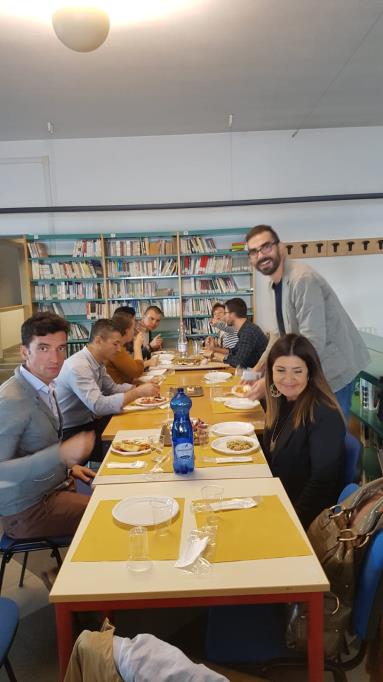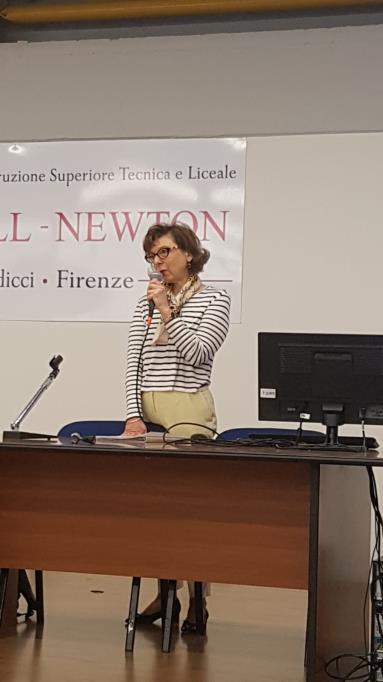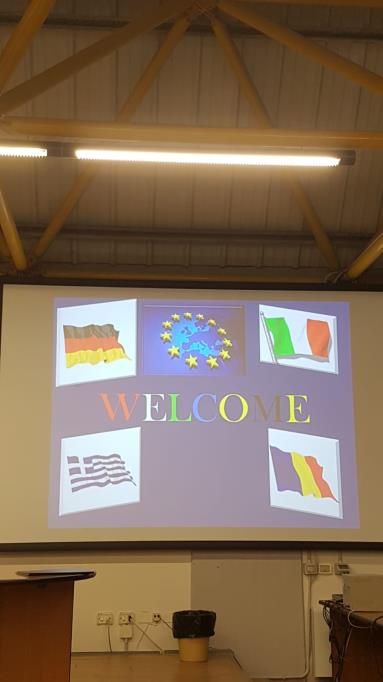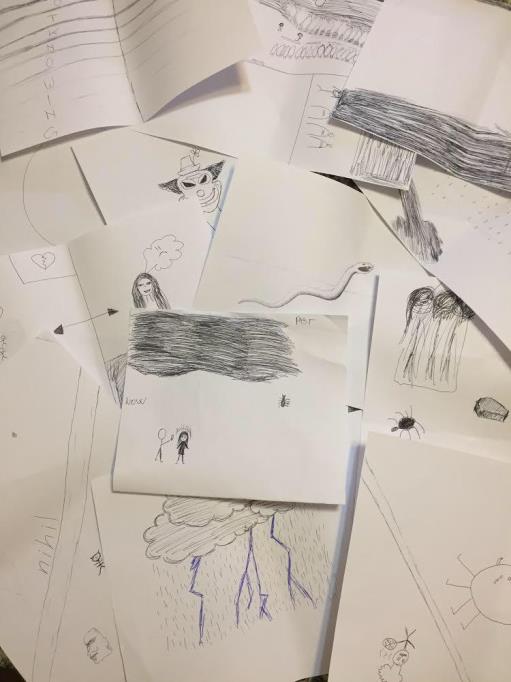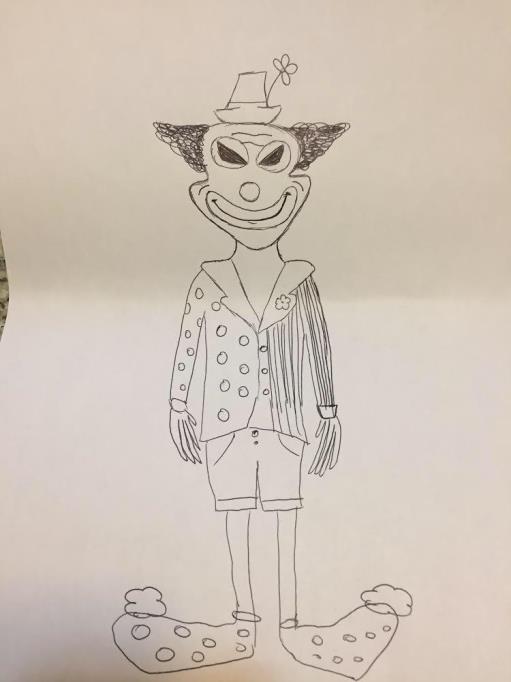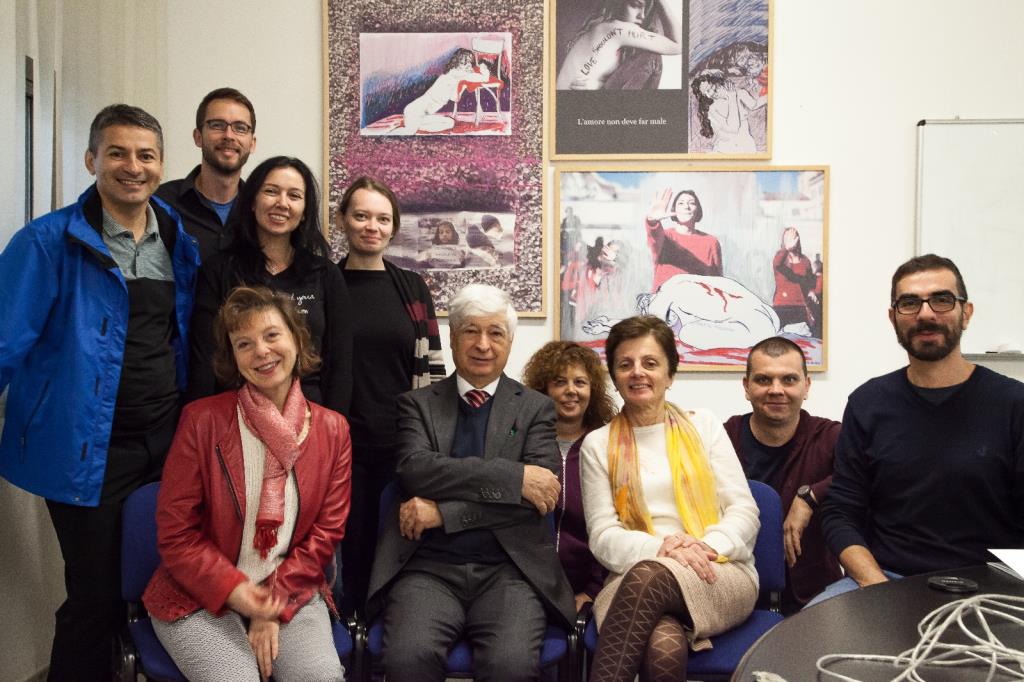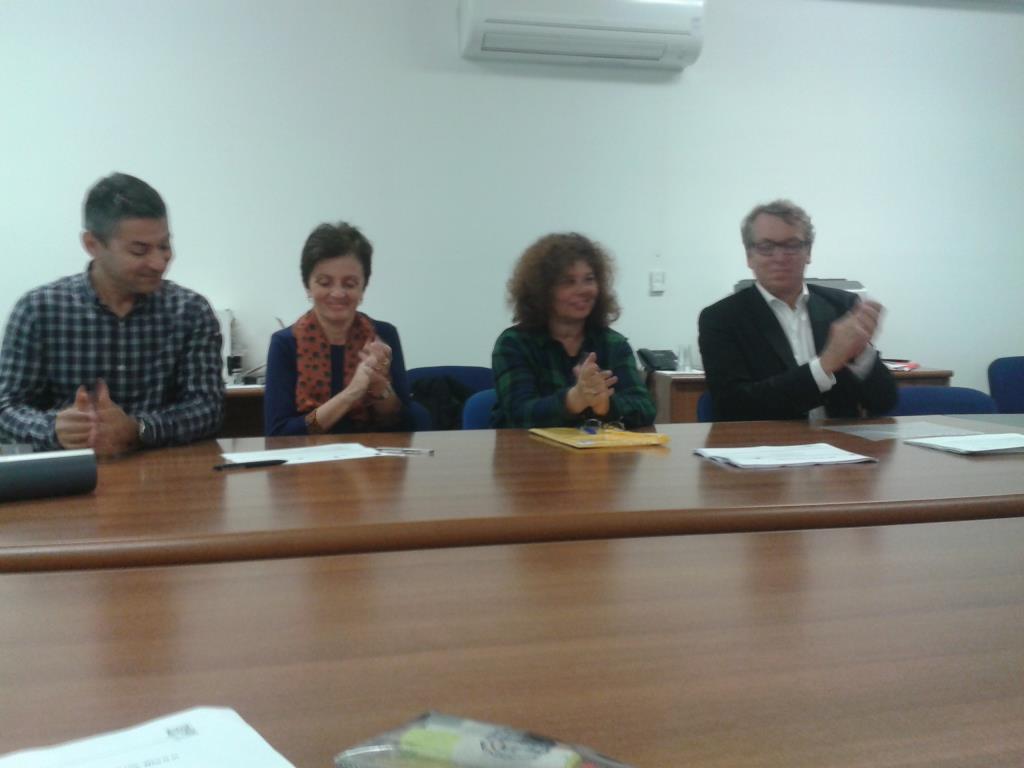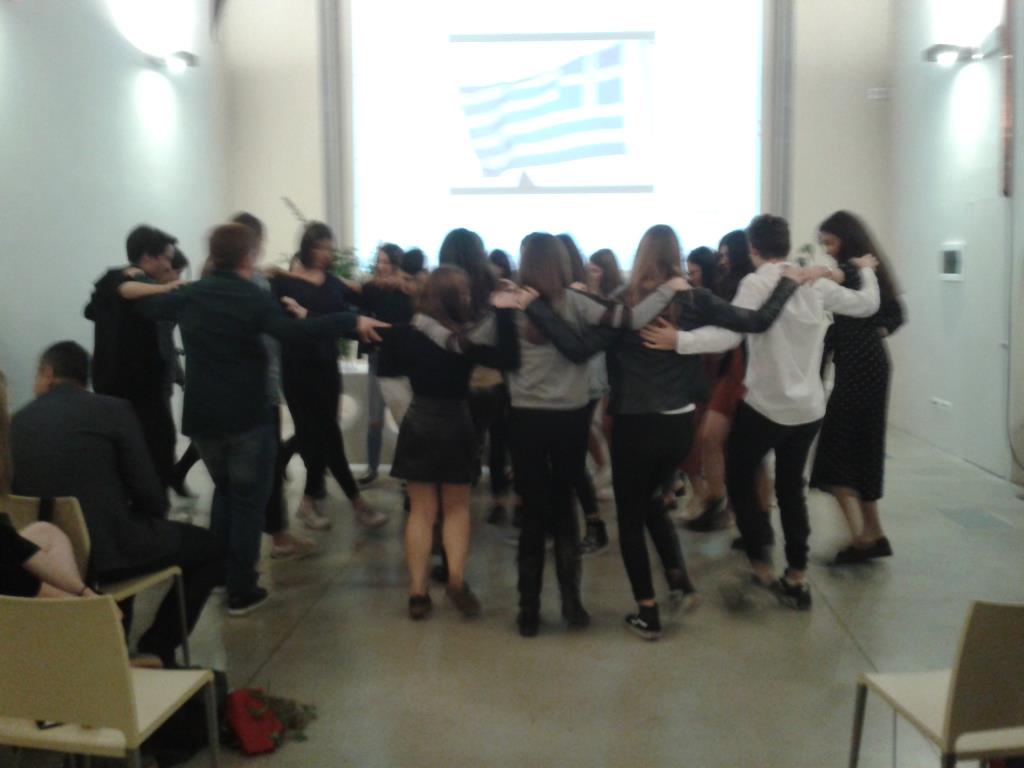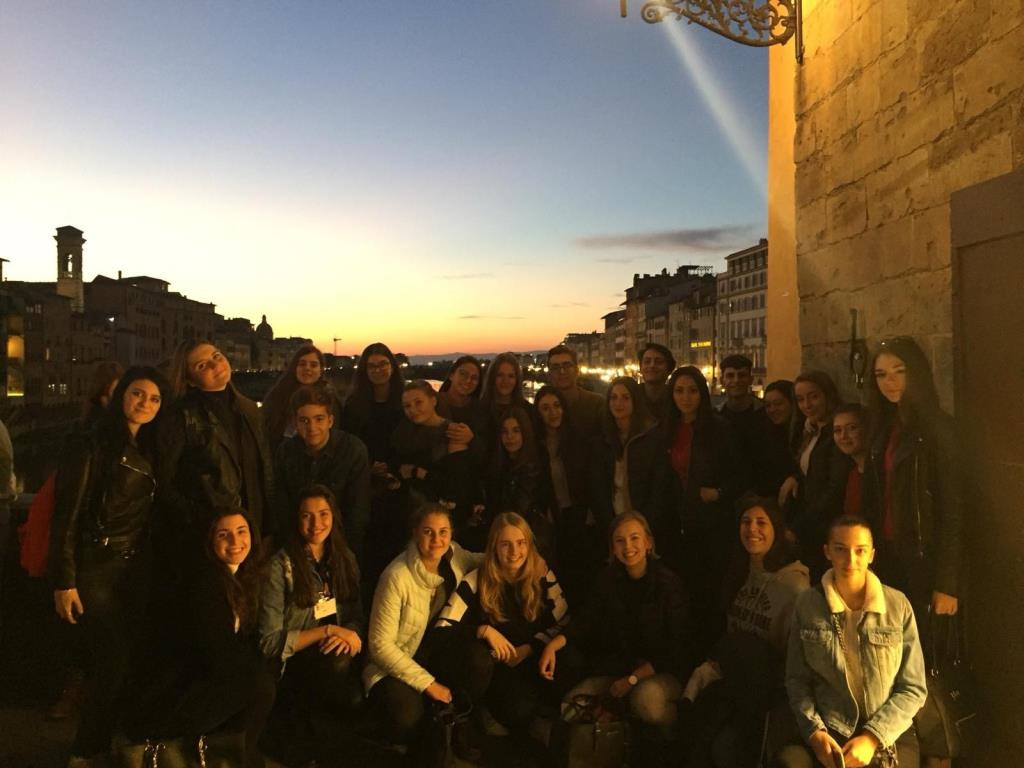3rd mobility in Italy
Italian Mobility
Our work and activities for the Erasmus + programme were focused on specific goals… First of all, we aimed at giving our students an insight into the key-steps leading to the European Union, its aims and political institutions. We examined these aspects in our first lesson; in this the Erasmus + students also worked out a questionnaire to be distributed to the other students of the school and which would be later used for the celebration of Europe’s Day… Our second goal was based on the topics of diversity, discrimination , integration, and inclusion. Here we intended to get the students acquainted with the concepts of stereotype and prejudice and make them reflect on discrimination and diversity also suggesting ways to overcome prejudice and promote acceptance and respect. This was the main focus of our next lessons as well as of the whole programme of the Italian mobility. We started with a workshop on stereotypes and prejudice; this was followed by reading some extracts from books which deal with the issue of discrimination. All this was later discussed; in particular we tried to put the stress on the idea that diversity is to be seen as an enrichment; in this regard we analysed diversity in different fields – biological and sexual, social, economic, religious, etc. This first session was concluded with a survey on discrimination addressed only to the third-year students of the school; the results were displayed during the German mobility..
The various mobilities were fundamental steps in the direction of promoting integration because they offered our students the opportunity to experience directly integration through the contact with boys and girls from different cultural backgrounds, coming from other countries and speaking different languages ..
Our mobility was assigned a specific topic: integration and inclusion through art and food. Therefore all the activities that we organised inside and outside the school covered this subject. Our purpose was to show how integration can be achieved through art, seen as a vehicle of universal values.
One of our Art History teachers held a workshop on expressionism, that is art as expression of universal feelings and emotions common to the whole mankind.
Next, we invited an artist and professor, Carlo Carli Meeting the artist Carlo Carli, to meet our Erasmus+ colleagues. Carlo Carli is particularly sensitive to the issue of immigration that is currently concerning and affecting Europe, in fact in his paintings he deals with this topic. With his speech he helped us reflect on the important role that teachers have in moulding the future European citizens in accordance with the values of tolerance and inclusion.
To offer a wider perspective on the subject of inclusion and integration we included in our programme a visit to the social farm “La Fonte” http://www.lafontecercina.org, a sort of community where disabled live and work together producing farm products like oil. Here we also had the chance to taste their local specialities. Also the visit to Florence Central Market in San Lorenzo was aimed to show how food can be a way towards integration , as the cuisine can be sometimes the result of different influences. In this perspective we have chosen the town of Livorno as a successful example of inclusion and integration. In the past centuries Livorno was a hub of co-existing populations and religions, as proven by the presence of a synagogue rising not far from a catholic church and by the typical local dish ‘cacciucco’ which is a combination of ingredients with different origins…
Our programme also included an analysis of gender diversity. This was covered by experts holding a lecture for teachers and a workshop for students… Finally, we wanted to show how the Italian school system implements policies of inclusion of disabled students. In this regard, we invited experts and teachers of students with special needs who illustrated the basic steps of Italian legislation and also showed how the disabled students are integrated in the classroom.
A german comment about the Italian mobility
It is important to learn modern languages and to analyze our society. In the Erasmus + project you learn to represent your own position, but also to accept other opinions too. The goal of this Mobility is to give up prejudices against other people, cultures and countries. With these expectations we came for our 3rd mobility to Florence.
In this community we learned about new views and new lifestyles. It is important to know this, because this is the best way to improve our world.
The first impressions were breath-taking. Florence tells us a long love story of an open-hearted and magic country. Florence is goes back to unique 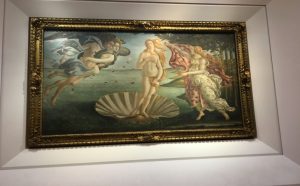 artists, such as Michelangelo. We visited the Uffizi gallery with a lot of old and famous paintings. Every painting tells its own story. It is impressive how many different wonderful paintings are exposed there.
artists, such as Michelangelo. We visited the Uffizi gallery with a lot of old and famous paintings. Every painting tells its own story. It is impressive how many different wonderful paintings are exposed there.
Besides we learned some words and sentences in Italian. Now we can say hello (ciao), good morning (buongiorno), good evening (buona sera), what is your name (come ti chiami?), my name is… (mi chiamo…), I love you (Ti amo / Ti voglio bene), and much more.
In our freetime we could use all these words and sentences.
The main topic of this mobility was gender theory, inclusion of people with special needs and fighting against prejudices. We realized that we all have to break stereotypes and be open minded.
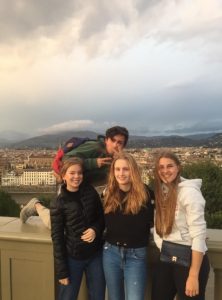 In the Italian mobility we could form new friendships. We learned about new cultures.
In the Italian mobility we could form new friendships. We learned about new cultures.
We all, Italians, Germans, Romanians and Greeks, worked together and created one of the most important things in the world: „unity and solidarity“. These are the main values on which Europe is based. Without unity and solidarity Europe couldn`t exist.
We learned to accept other opinions and to represent our own opinions. Italian people love their beautiful city, their gastronomic culture and their family. They love to help other people – everybody, no matter where you are or who you are, is welcome. Italian people showed us how to be open-hearted and welcoming.
We can all learn from their openness and their love of life (motto in life: „Just do it“) – accepting everybody as they are. We are all humans and we have to live and love. Erasmus+ is a first step and helps us realize our dream of one unity and a well functioning politics – one Europe.
We are proud to be a part of it.
Sina Gerhard for Erasmus+
Program: Italian mobility program
Invitation: Invitation to the 3rd Erasmus+Mobility
Day 1 - Monday 22nd Oct 2018
Welcome ceremony
Tour of the School
Socialising Activities
Lesson: Introduction to Art and the history of Renaissance in Florence
Discussion on the integration of the disabled with an expert
Day 2 – Tuesday 23rd Oct 2018
Meeting and workshop with Ms Ristori
Tour of the Central Market of San Lorenzo+ Tasting local specialities
Visit to the Uffizi Museu
Day 3 – Wednesday 24th Oct 2018
Meeting the painter Carlo Carli
Visit of the city of Pisa
Visit of the town of Livorno
Day 4 – Thursday 25th Oct 2018
Guided tour of Florence
Visit of the social farm: “La fonte”
Day 5 – Friday 26th Oct 2018
Feedback on the mobility. Preparing the mobility results.
Farewell ceremony @ Acciaiolo Castle



